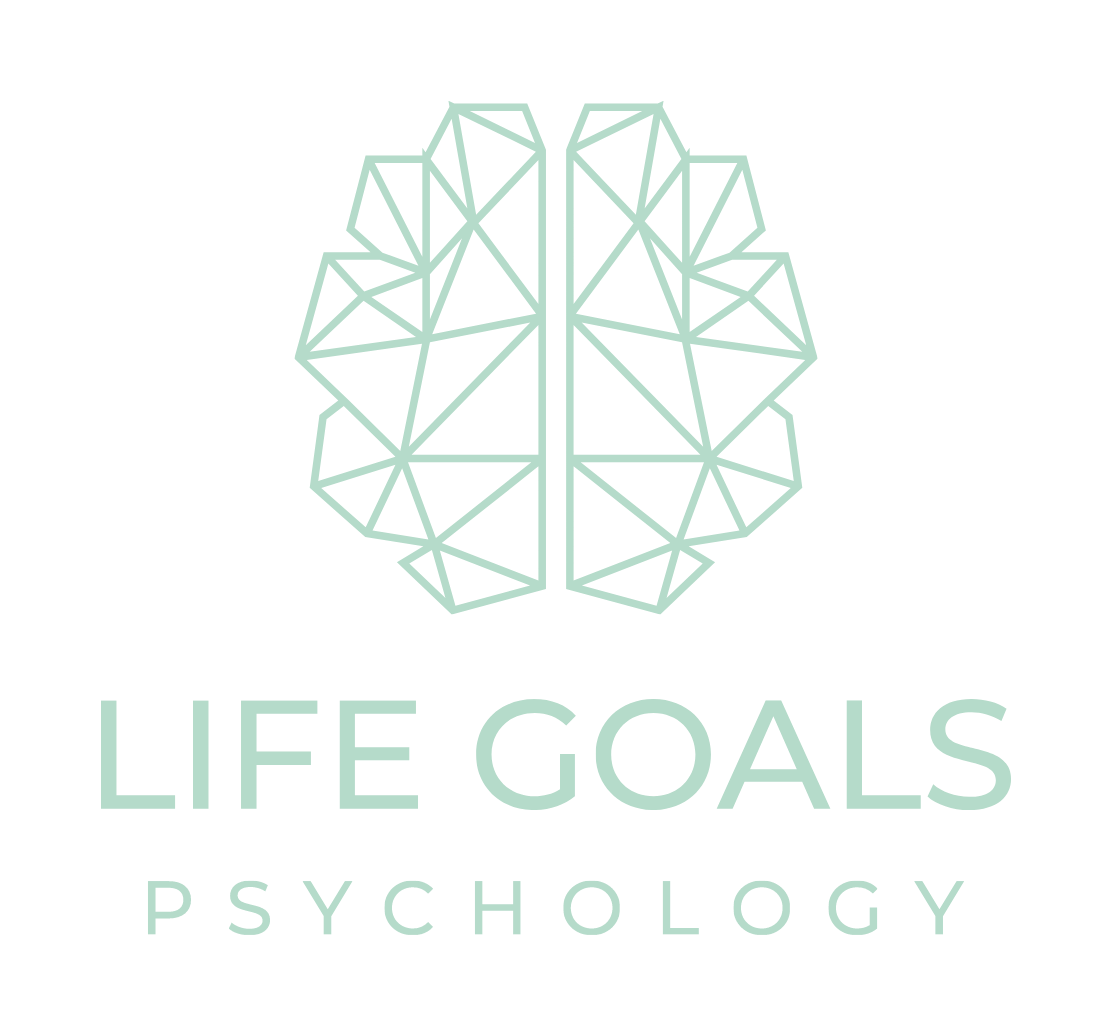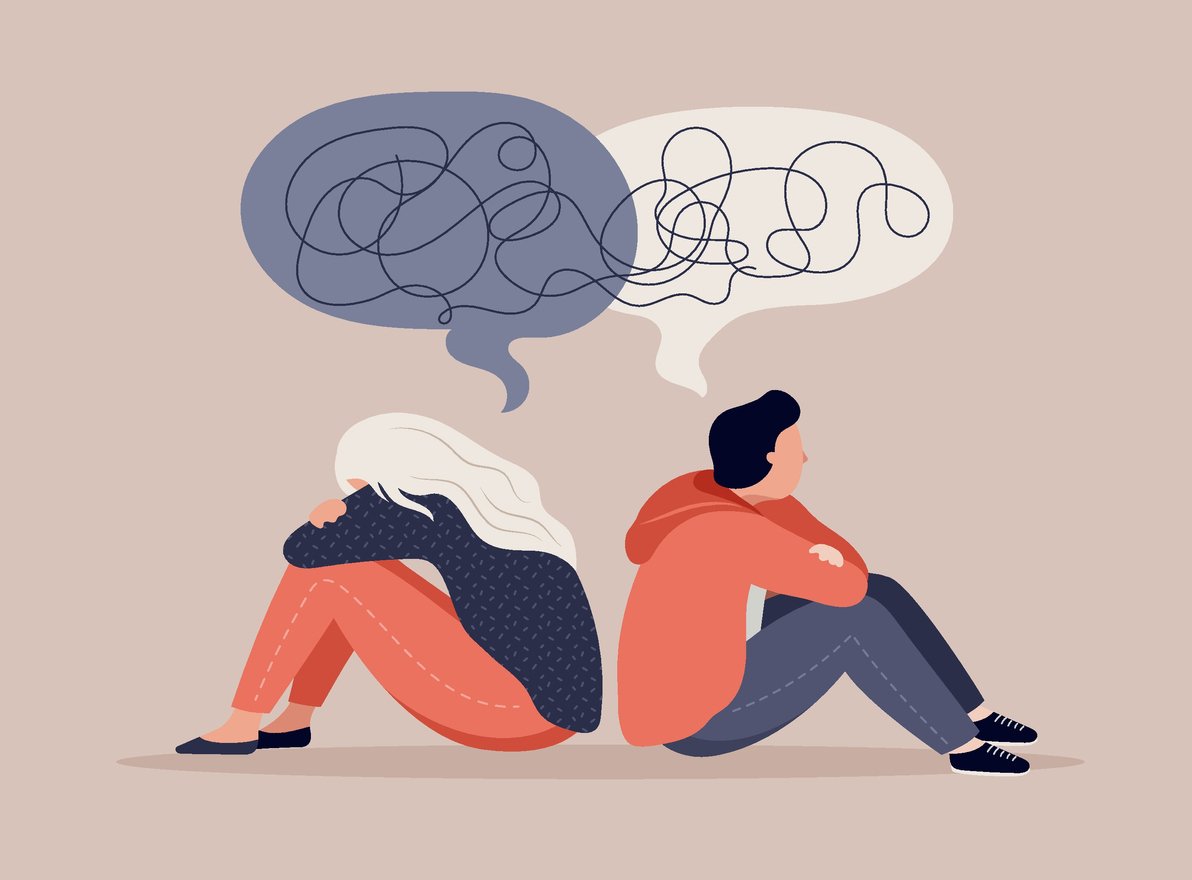The cycle of anxiety
How to understand and reverse the cycle of anxiety, depicted by drawings and psychological concepts explained by psychologist Christine Halden
Content creator: Christine Halden
Depression
Depression is a mental health disorder that affects millions of people worldwide. It is characterized by feelings of sadness, hopelessness, and a loss of interest in activities that were once enjoyable. Depression can be caused by a variety of factors, including genetics, life events, and chemical imbalances in the brain.
Living with depression can be a challenge, but there are everyday interventions that can help you stay anchored until the pain passes. Here are some tips for managing depression:
1. Get moving
Exercise has been shown to be an effective way to manage depression. It releases endorphins, which are feel-good chemicals that can help improve mood. Even a short walk or some gentle stretching can make a difference.
2. Connect with others
Depression can be isolating, but it’s important to stay connected with others. Reach out to friends or family members, join a support group, or talk to a therapist. You don’t have to go through this alone.
3. Practice self-care
Taking care of yourself is important when you’re dealing with depression. Make sure you’re eating healthy foods, getting enough sleep, and taking time for activities that you enjoy.
4. Set small goals
When you’re feeling depressed, it can be hard to get motivated. Setting small goals for yourself can help you feel a sense of accomplishment and boost your mood. Start with something simple, like taking a shower or cleaning one room in your house.
5. Challenge negative thoughts
Depression can cause negative thinking patterns, but it’s important to challenge those thoughts. Ask yourself if they’re based in reality, and try to reframe them in a more positive way.
6. Seek professional help
If you’re struggling with depression, it’s important to seek professional help. A therapist or psychiatrist can help you develop a treatment plan that works for you.
Remember, depression is treatable, and there are things you can do to manage it. By taking care of yourself and reaching out for help when you need it, you can stay anchored until the pain passes.
When to see a psychologist
You might notice some difficult themes in your life that you want to change. You might even be struggling with depression. Despite all your attempts, you still feel stuck in the same old rut. You want something different; you want to be different.
It can feel like you're trying to move a giant boulder up a steep hill with only a teaspoon - but that's okay because at least you're moving! Right?
Sometimes we get so focused on making any kind of progress that we fail to notice how small our steps actually are. We're not moving anywhere close to the desired direction because we're focusing too much on that teaspoon.
You might be thinking, "Okay, I'll stop focusing so much and start taking bigger steps." But then you realize that there's no way you can take a big step when your leg is only an inch off the ground! You want change; you want different legs. You want something new.
If you could change one thing about your life right now, what would it be?
If you’ve got your answer but are unsure of how you’ll achieve it. It’s time to seek professional help, learn to recognise signs, symptoms and triggers so you can get your sense of agency back and make choices aligned with the direction you want to head in.
When your partner has ADHD and so do you!
There are valid concerns and emotions in a relationship where both of you struggle to regulate your emotions. You’ll likely both have different methods and strategies of coping that you’ve adopted over the years to manage difficulties managing time, organisation, impulse control, memory and/or your energy.
We’re all uniques in the way we think, how our DNA is sequenced, our family environments, personality traits and life experiences. This means that no two people with ADHD are the same. You might think ADHD looks like disorganisation, a messy room or missing deadlines for example. However, an individual who didn’t like the cost to their school work, social life, home life or other may have started to use tactics or strategies to hide their disorganisation, or manage how they come across to others, or interpret forgetfulness as “letting someone down” and think it feels so terrible that they put post it notes everywhere so they reduce the risk of forgetting events. What this means is that you may come across a very organised adult who has calenders, diaries and accessories that help streamline or delegate their short term or working memory to systems. You may not look at that person and guess they have ADHD. They’ve become good at that system from their early experiences with ADHD. That is one example of how someone may present or behave in response to their difficulties with ADHD.
Another presentation may be an individual who didn’t figure out this startegy but instead found that their difficulties with impulse control and emotion regulation lead them to gambling and the costs to their career, friends and family mean that they have since addressed that and no longer attend sporting events.
Does this mean if you have impulse control issues you will become addicted to something? No, because we all have different life experiences, lessons, resources, support systems, beliefs, personality traits and DNA.
Even though ADHD presents differently in each individual there are some simililarities.
A function of ADHD can be rapid speech, someone may find this difficult to follow, while another person with ADHD may think, yes! this is my speed and enjoy their interactions with that person, they may stimulate each other. Something I have come across in couples with ADHD is that they find similarities and think that means they can understand each other, so when they reach a misunderstanding or note a difference this brings on anxiety. Humans want to be able to predict things, our brains want homeostasis (the greek word for “same”). Celebrating the differences within a relationship is a hallmark of any great relationship. ADHD or not, differences between us distrupts a feeling of stability because its harder for us to predict. So what if we got curious instead? We accepted that difference and explored why. Then if the two examples above met, the person who wouldn’t join their partner at the soccer wouldn’t feel rejected because they sought to understand their experience. They could just as easily think I have ADHD and I can gamble comfortably. Without seeking to explore the differences and getting to really know one another you can’t co habitate peacefully, you can’t predict and you’re going against what your brain, without your conscious consent, is seeking.
If you think you struggle in any of these avenues and you don’t feel like you have adequate coping skills speak to your GP today for a referral to see a psychologist or psychiatrist.
Christine Halden
Psychologit
Are you moving away from or towards the life you want?
Are you moving away from or towards the life you want to live?
There are a few different concepts to consider when thinking about your goals. Vision is important, that’s why we day dream and nurture imagination and creativity with music, dance, art, design and play.
Insight is equally as important so we’re heading towards achievable goals. Have you ever heard the story about the elephant that spent his whole life trying to swim with the dolphins or the fish that kicked himself because he couldn’t climb trees? If a fish knew his strengths and weaknesses he wouldn’t be so mad at himself for not being able to climb a tree, if it was truly his life’s ambition to be high up in the sky like a tree would allow he would navigate himself to higher ground and swim in a river on top of a cliff. The insight would allow the fish to use creativity to reach goals without causing strain and frustration. Confidence, positive self talk and encouragement or cheerleading is another essential concept to understand and master.
Vision
Practically you want to think about what your goals will look like. What does the end result mean for your life? What does the journey look like? How will it feel? How does it feel? Hold in your mind a visualisation of each step or externalise it if that works for you. Vision boards are an effective reminder of what you’re getting out of bed for.
2. Insight
With insight into the reason for your goals, an understanding of why you’re striving for it, you won’t be lead astray. For example, you might think I want to be like Barack Obama. You may then work tiresly to get into politics because your reference point for him is when he was president. If you ask yourself why, you might realise the thing you admire about him is his confidence, his self assuredness and that’s what you picture when you remember him as president. So while your visualisation of him is at a conference speaking as a president its the way in which he speaks that you admire. This opens up more doors, you could achieve that goal with acting classes, going outside your comfort zone, travel, public speaking seminars or workshops, any number of new avenues towards your actual goal.
Insight also allows you to know yourself. Spend time thinking about your values, what ignites passion, what feels right, what doesn’t. The closer you are to knowing who you are, or in the earlier metaphor the sooner you realise you’re a fish and what a fish is best at, the sooner you can use your strengths to achieve things. The more you achieve, the more trust you’ve developed for your own ability.
3. Confidence
Confidence comes from an innate trust in yourself. Trust requires a positive relationship with yourself. If you think about your friendships, question what works about them, how do you speak to each other? Do you speak to yourself the same way? To build a positive relationship with yourself you need to check your self talk, are you having your own back? Are you practicing self compassion? If you do right by yourself you’ll trust yourself. This is an essential part of success. You can’t set appropriate goals if you don’t trust your own judgement. You will take steps in the right direction with vision, insight and confidence in your own abilities.
Christine Halden
Psychologist



